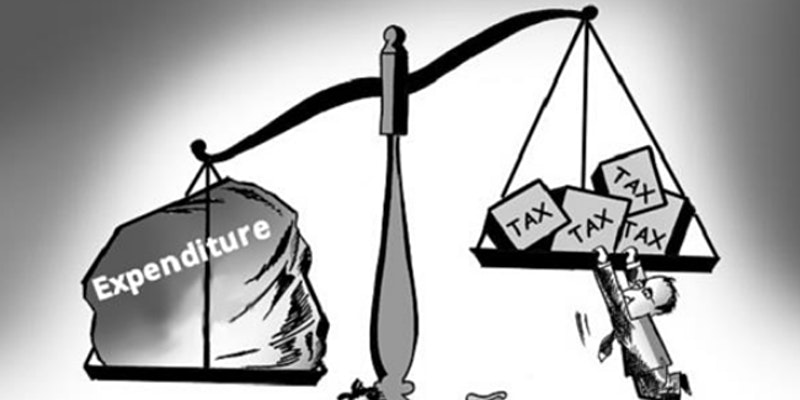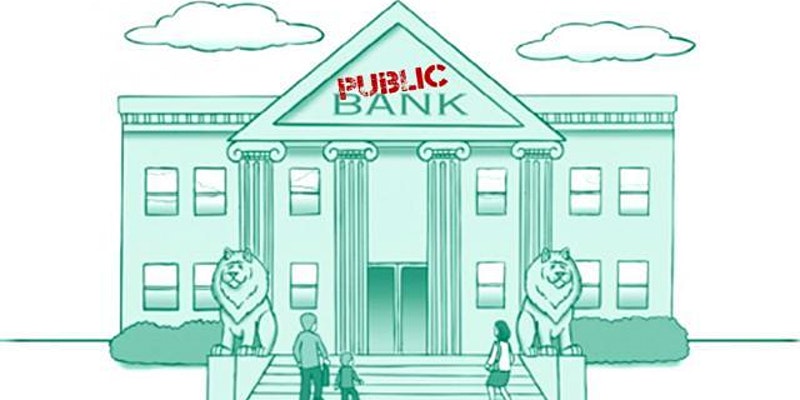Henry George School of Social Science Calendar
- 0202.May.Monday

Do Deficits Really Matter?
Session 3Henry George School of Social Science149 East 38th Street, New York, NY 10016DO DEFICITS REALLY MATTER?
Does the federal deficit matter or is it just one of those myths entertained by faulty economic thinking?
Modern Money Theory (MMT), a heterodox school of macroeconomic thought asks:
- To what degree is a country monetarily sovereign?
- How does that impact the economic policies that country is able to pursue?
A monetarily sovereign nation is one whose government issues its own currency, does not peg the value of that currency to any other currency or to any precious metal, and does not take on debt in any currency other than its own.
It turns out that whether a country is monetarily sovereign or not has tremendous importance in determining the economic policies it can pursue in response to crises, be they economic, political, medical or ecological. MMT explains, for example, why the U.S. federal government can create hundreds of billions of dollars to spend in response to the COVID-19 pandemic, while state and local governments (not to mention individual households) cannot.
In this course you will learn about MMT by doing a close reading of Stephanie Kelton’s 2020 bestseller, “The Deficit Myth.” The course will be conducted in a seminar style: six weekly sessions, in each of which the student will be expected to have read one or two chapters in Kelton’s book and worked through discussion questions. At the conclusion of this course, the student should understand MMT well enough to be able to explain it and to use MMT-based insights to understand the current political economy of the U.S. and other countries.
Instructor: James Keenan
Dates: Mondays, 4/18, 4/25, 5/02, 5/09, 5/16, 5/23
Time: 6:30 PM – 8:00PM EDTA link to join the online course will be provided via email before the start of the first session.
- 0909.May.Monday

Do Deficits Really Matter?
Session 4Henry George School of Social Science149 East 38th Street, New York, NY 10016DO DEFICITS REALLY MATTER?
Does the federal deficit matter or is it just one of those myths entertained by faulty economic thinking?
Modern Money Theory (MMT), a heterodox school of macroeconomic thought asks:
- To what degree is a country monetarily sovereign?
- How does that impact the economic policies that country is able to pursue?
A monetarily sovereign nation is one whose government issues its own currency, does not peg the value of that currency to any other currency or to any precious metal, and does not take on debt in any currency other than its own.
It turns out that whether a country is monetarily sovereign or not has tremendous importance in determining the economic policies it can pursue in response to crises, be they economic, political, medical or ecological. MMT explains, for example, why the U.S. federal government can create hundreds of billions of dollars to spend in response to the COVID-19 pandemic, while state and local governments (not to mention individual households) cannot.
In this course you will learn about MMT by doing a close reading of Stephanie Kelton’s 2020 bestseller, “The Deficit Myth.” The course will be conducted in a seminar style: six weekly sessions, in each of which the student will be expected to have read one or two chapters in Kelton’s book and worked through discussion questions. At the conclusion of this course, the student should understand MMT well enough to be able to explain it and to use MMT-based insights to understand the current political economy of the U.S. and other countries.
Instructor: James Keenan
Dates: Mondays, 4/18, 4/25, 5/02, 5/09, 5/16, 5/23
Time: 6:30 PM – 8:00PM EDTA link to join the online course will be provided via email before the start of the first session.
- 1111.May.Wednesday

Public Banks – The What, the Why and the How
Session 1Henry George School of Social Science149 East 38th Street, New York, NY 10016PUBLIC BANKS – THE WHAT, THE WHY AND THE HOW
Are public banks a better alternative to our existing private banking model?
This 5-session course will discuss the public bank model, comparing and contrasting it to private banks to highlight marked differences between them and their implications for the community. The course will also look into past and present experiments in public banking in the United States and showcase their profound effect in our history. The Bank of North Dakota’s stellar performance during the 2008 financial crisis will be analyzed.
Instructors
Earl Staelin – Earl is a lawyer and the chair of the Rocky Mountain Public Banking Institute, a 501(c)(3) nonprofit, whose mission is to educate Coloradans, legislators, and other public officials on the many advantages of a state-owned and local public banks, for a strong, stable, and just economy. He has done extensive legal and financial research and writing on public banking and drafted legislation to establish a state and local public banks. He also worked with public banking advocates to advance public banking in the United States.
Alec Tsoucatos, PhD, was born of Greek parents in Alexandria, Egypt, a day before Pearl Harbor in 1941. He attended primary school at a British institution in Alexandria and finished Junior High and High School in Athens, Greece. He received his bachelor’s and master’s degrees in economics from UC Berkeley and his PhD from CU Boulder under the tutelage of Kenneth Boulding. His main interests are in new economics, integrative medicine, positive psychology and progressive mystical Christianity.
Dates: Wednesdays: 5/11, 5/18, 5/25, 6/01, 6/08; from 6:30PM to 8:00PM EDT
Note: This is an online event. Access information will be made available after registration.
A link to join the online course will be provided via email before the start of the first session.
- 1616.May.Monday

Do Deficits Really Matter?
Session 5Henry George School of Social Science149 East 38th Street, New York, NY 10016DO DEFICITS REALLY MATTER?
Does the federal deficit matter or is it just one of those myths entertained by faulty economic thinking?
Modern Money Theory (MMT), a heterodox school of macroeconomic thought asks:
- To what degree is a country monetarily sovereign?
- How does that impact the economic policies that country is able to pursue?
A monetarily sovereign nation is one whose government issues its own currency, does not peg the value of that currency to any other currency or to any precious metal, and does not take on debt in any currency other than its own.
It turns out that whether a country is monetarily sovereign or not has tremendous importance in determining the economic policies it can pursue in response to crises, be they economic, political, medical or ecological. MMT explains, for example, why the U.S. federal government can create hundreds of billions of dollars to spend in response to the COVID-19 pandemic, while state and local governments (not to mention individual households) cannot.
In this course you will learn about MMT by doing a close reading of Stephanie Kelton’s 2020 bestseller, “The Deficit Myth.” The course will be conducted in a seminar style: six weekly sessions, in each of which the student will be expected to have read one or two chapters in Kelton’s book and worked through discussion questions. At the conclusion of this course, the student should understand MMT well enough to be able to explain it and to use MMT-based insights to understand the current political economy of the U.S. and other countries.
Instructor: James Keenan
Dates: Mondays, 4/18, 4/25, 5/02, 5/09, 5/16, 5/23
Time: 6:30 PM – 8:00PM EDTA link to join the online course will be provided via email before the start of the first session.
- 1818.May.Wednesday

Public Banks – The What, the Why and the How
Session 2Henry George School of Social Science149 East 38th Street, New York, NY 10016PUBLIC BANKS – THE WHAT, THE WHY AND THE HOW
Are public banks a better alternative to our existing private banking model?
This 5-session course will discuss the public bank model, comparing and contrasting it to private banks to highlight marked differences between them and their implications for the community. The course will also look into past and present experiments in public banking in the United States and showcase their profound effect in our history. The Bank of North Dakota’s stellar performance during the 2008 financial crisis will be analyzed.
Instructors
Earl Staelin – Earl is a lawyer and the chair of the Rocky Mountain Public Banking Institute, a 501(c)(3) nonprofit, whose mission is to educate Coloradans, legislators, and other public officials on the many advantages of a state-owned and local public banks, for a strong, stable, and just economy. He has done extensive legal and financial research and writing on public banking and drafted legislation to establish a state and local public banks. He also worked with public banking advocates to advance public banking in the United States.
Alec Tsoucatos, PhD, was born of Greek parents in Alexandria, Egypt, a day before Pearl Harbor in 1941. He attended primary school at a British institution in Alexandria and finished Junior High and High School in Athens, Greece. He received his bachelor’s and master’s degrees in economics from UC Berkeley and his PhD from CU Boulder under the tutelage of Kenneth Boulding. His main interests are in new economics, integrative medicine, positive psychology and progressive mystical Christianity.
Dates: Wednesdays: 5/11, 5/18, 5/25, 6/01, 6/08; from 6:30PM to 8:00PM EDT
Note: This is an online event. Access information will be made available after registration.
A link to join the online course will be provided via email before the start of the first session.

